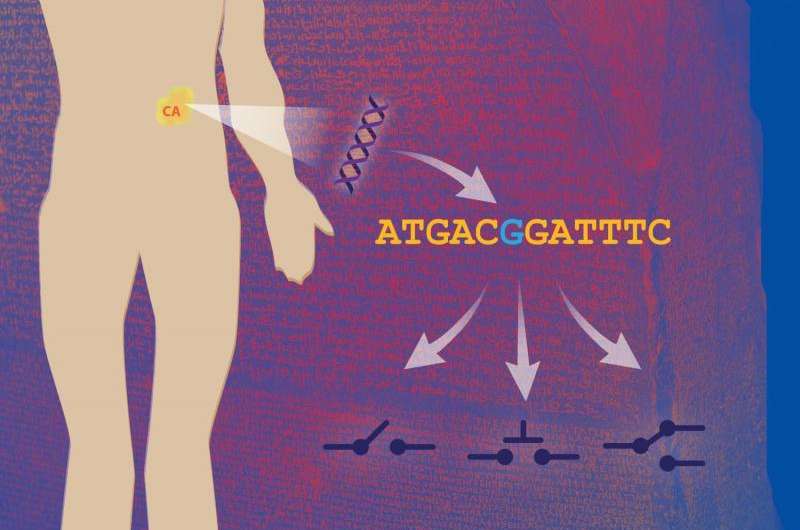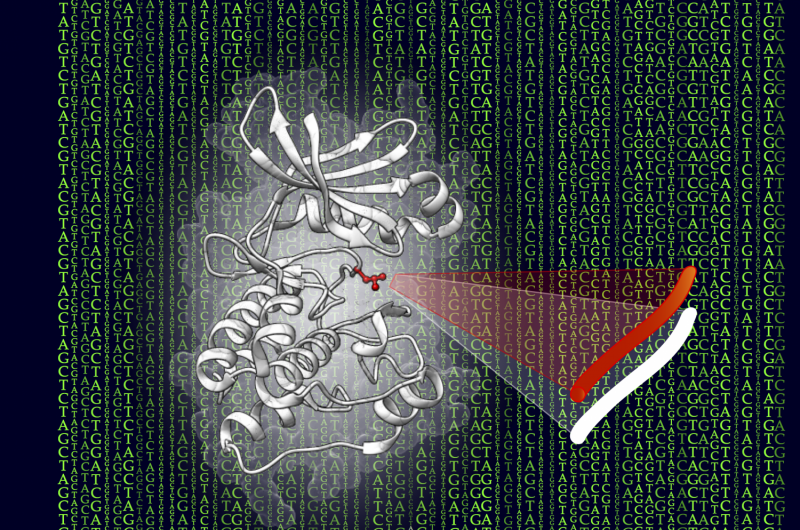Digital 'Rosetta Stone' decrypts how mutations rewire cancer cells

Scientists have discovered how genetic cancer mutations systematically attack the networks controlling human cells, knowledge critical for the future development of personalized precision cancer treatments.
Since the human genome was decoded more than a decade ago, cancer genomics studies have dominated life science worldwide and have been extremely successful at identifying mutations in individual patients and tumors. However, using this knowledge to develop improved cancer therapies has been severely hampered by the inability of researchers to link the mutations in genes to their corresponding proteins, the targets of most pharmaceutical drugs.
Translating DNA mutations
Researchers from the universities of Copenhagen, Yale, Zurich, Rome and Tottori have, in two landmark studies published in today's Cell, unraveled how disease mutations target and damage the protein signaling networks within human cells on an unprecedented scale. The team has developed novel software that allows researchers to computationally translate the effects of cancer mutations on the function of proteins in individual patients.
Lead researcher on the projects, Prof Dr Rune Linding from the Biotech Research & Innovation Centre (BRIC) at the University of Copenhagen (UCPH), states: "The identification of distinct changes within our tissues that help predict and treat cancer is a major step forward and we are confident it can aid in the development of novel therapies and screening techniques."
First author Dr Pau Creixell explains, "Given the tremendous amount and growth of genomic knowledge, a key challenge scientists face is how to interpret these data. This new software that can reveal how single DNA mutations can have dramatic molecular effects in cells by affecting critical enzymes called kinases."

The studies, published back-to-back in Cell, demonstrate that kinases are not only simply switched 'on' or 'off' by cancer mutations but can also disturb other proteins and thereby drive normal cells to a more cancerous state.
Advancing personalized and tumor-specific medicine.
Collaborator Dr Ben Turk, Associate Prof of Pharmacology at Yale University, adds that "identifying mutations that effect the way that kinases regulate other proteins helps us to prioritize potential therapeutic targets, facilitating the advance of personalized medicine."
It is becoming increasingly apparent that the genetic basis for each tumor is subtly different. This realization has led to healthcare centers spending millions of dollars sequencing individual patients and their tumors with the aim of utilizing this patient specific information to develop tailored, personalized therapies, with much greater efficacy. It is hoped that the novel tools described in these studies can provide much needed assistance to clinicians and researchers worldwide in interpreting this data.
Cancer biologist and co-author Dr Janine Erler states that "Studies like these are vital in enabling us to better understand the behavior of tumors in both individual and groups of patients, with these twin-papers we have seriously changed gears in the fight against cancer and other complex diseases."
More information: 1. Creixell et al. Unmasking Determinants of Specificity in the Human Kinome. Cell, DOI: 10.1016/j.cell.2015.08.057
2. Creixell et al. Kinome-wide Decoding of Network Attacking Mutations Rewiring Cancer. Cell, DOI: 10.1016/j.cell.2015.08.056

















